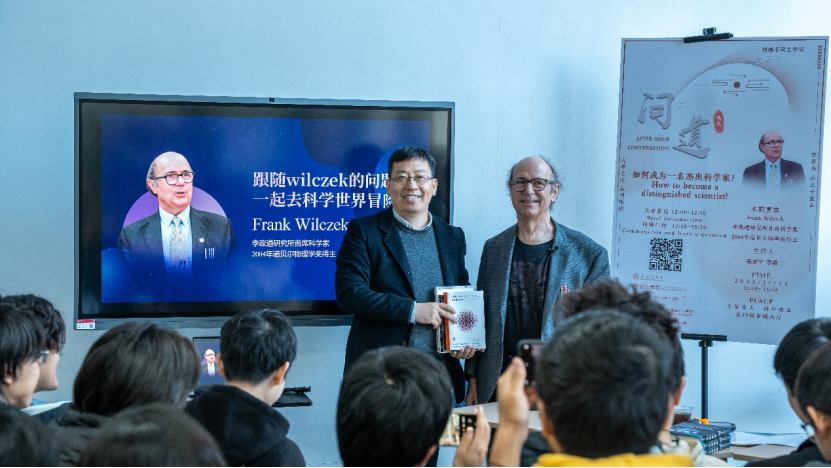
Recently, the 2nd round of "To Be a Distinguished Scientist" academic event, titled "How to Become a Distinguished Scientist?", was successfully held in the lobby of the East 19 dormitory building. Zhiyuan has invited Professor Frank Wilczek, the Chief Scientist of Li Zhengdao Institute and winner of the 2004 Nobel Prize in Physics, to have a dialogue and exchange with the students, allowing everyone to experience the thoughts and wisdom of the academic master, strengthen their research path, understand further the impact of knowledge learned in university on future scientific research, and clarify the direction to become a true scientist in the future.
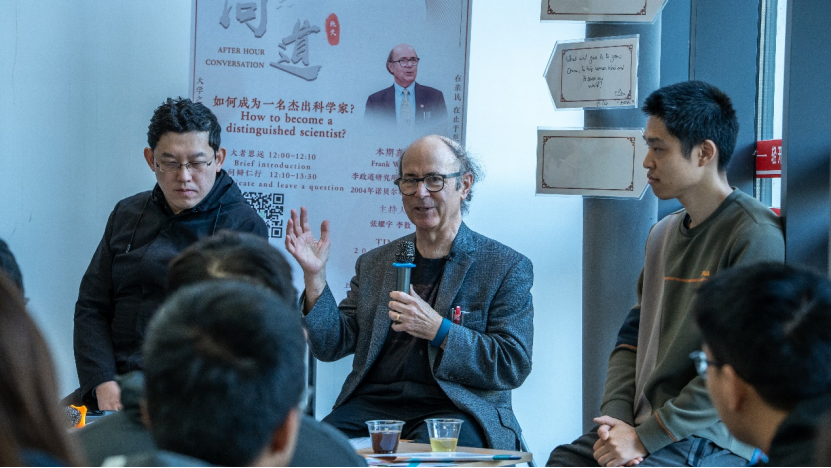
The event was co-hosted by Yaoyu Zhang, alumni of Zhiyuan, and Associate Professor of Institute of Natural Science Research, and the class mentor of the 2020 Mathematics discipline. In addition, Shu Li, Associate Professor of the Institute of Particle and Nuclear Physics at the Li Zhengdao Research Institute, and class mentor of the 2020 Physics discipline; Zhiqin Xu, alumni of Zhiyuan, Associate Professor of the Institute of Natural Sciences & School of Mathematics Sciences, and class mentor of the 2019 Mathematics discipline, as well as Professor Feng He, Executive Deputy Dean, and Ms. Xiaoling Wu, Deputy Secretary of General Party Branch Committee also attended the event.
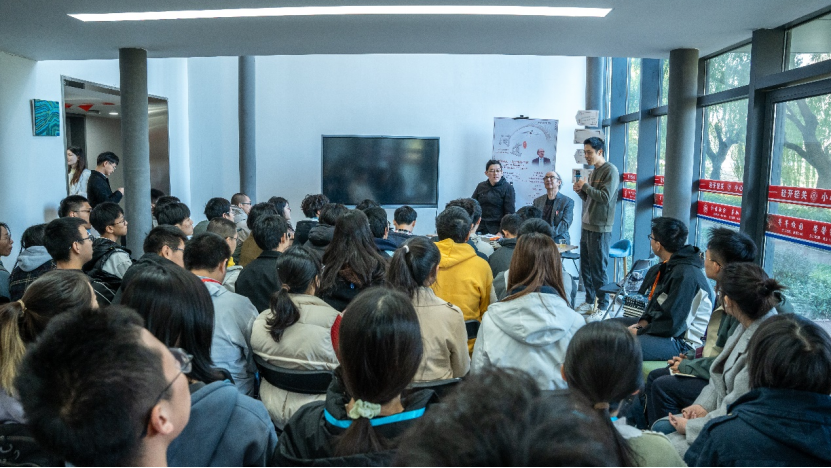
The first part of the activity is "The Great Think Far". The students first learned about Professor Frank Wilczek's research field and achievements through a short video clip. The second part of the activity is "Questioning, Debating, Benevolent Behavior". Professor Wilczek answered some of the questions collected in advance, including questions such as “What is one of the major open problems you are most interested in?”, “What kind of progress could be seen in this problem in the next 5 to 10 years?”, “What advice do you have for scholars or students who are eager to solve this problem?” etc..
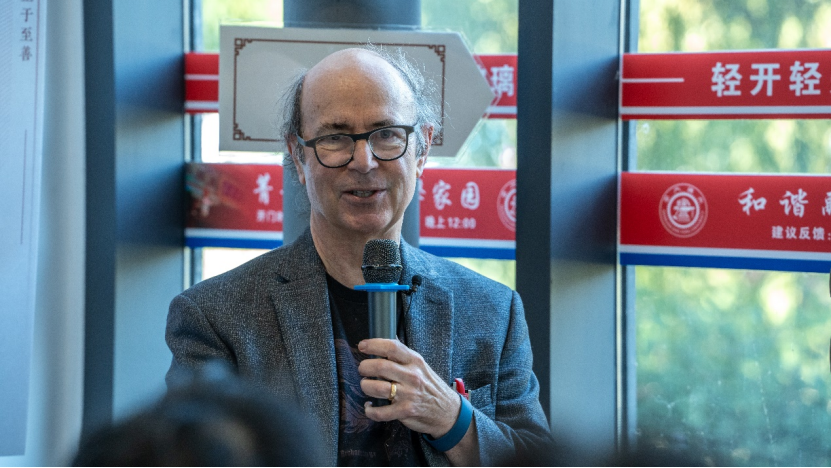
Professor Wilczek gave a concise and detailed answer to the students, emphasizing that they should master more basic learning knowledge and skills, listen and think further, and have a broad understanding of knowledge, so that they can have valuable ideas for scientific research in their hearts.
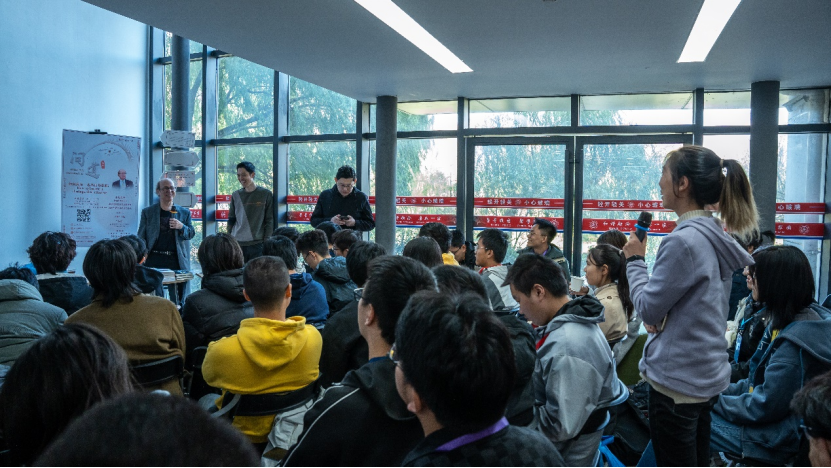
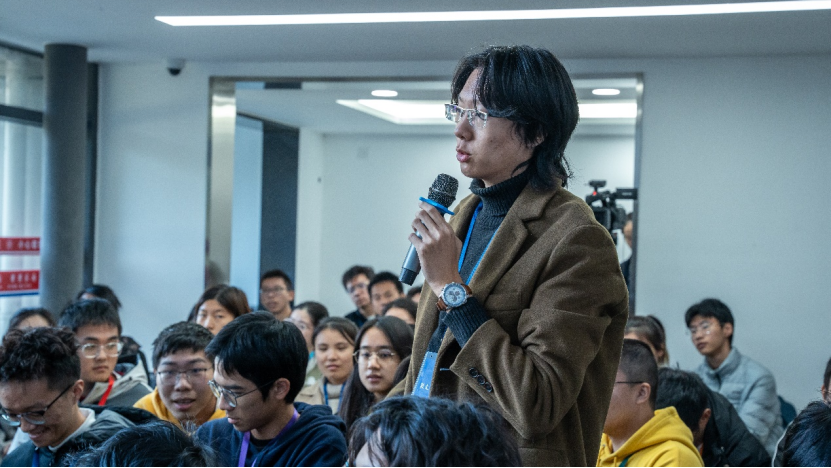
In the free questioning session, the students actively asked questions related to scientific research, such as what is the most important quality in the research process, whether to switch to a new direction in a timely manner after encountering failures and setbacks, or whether to persist in the research. Professor Wilczek is quite humorous and shared his in-depth insights with the students, encouraging them to set firm goals, choose scientific questions they love and value, explore with curiosity, and persist with diligence.
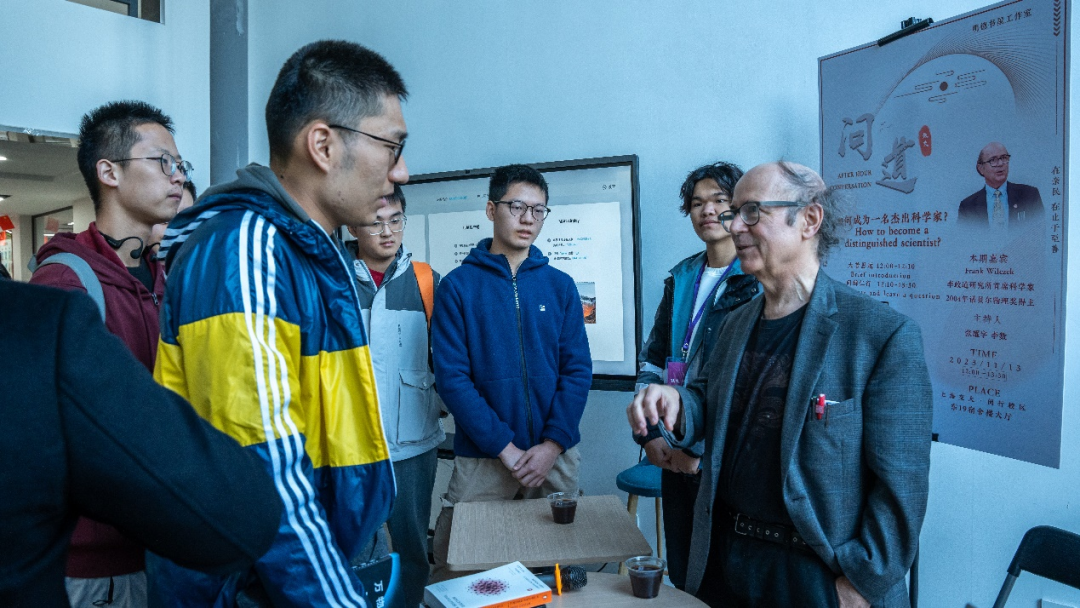
At the end of the event, Professor Wilczek presented a set of books signed by him to Zhiyuan College.
Student representatives Xinyao Zheng from the 2021 Life Science division of Zhiyuan College and Litao Wei from the 2022 Engineering division presented calligraphy works to Professor Wilczek and explained in details the inherent meaning of the calligraphy content "Dao gives birth to one, one gives birth to two, two gives birth to three, and three gives birth to everything".
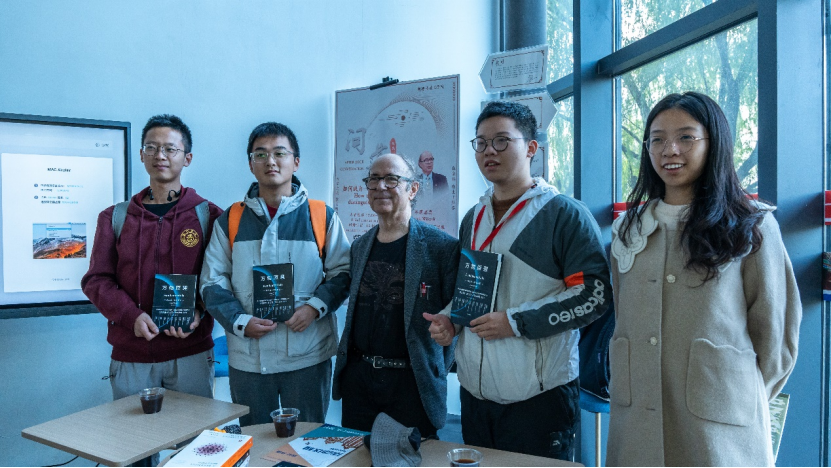
This sentence describes the process of the universe from nothing to existence. "Dao Sheng Yi" represents the initial stage of the universe and is the foundation of all things. "Yi Sheng Er" represents the transformation of a complete whole into two opposing sides and mutual influence. The ultimate "Three Generates everything" represents the creation of this world through a series of complex processes. "Dao" also represents Li Zhengdao's "Dao", symbolizing the connection between Shanghai Jiao Tong University and Professor Wilczek. "Everything" also represents Professor Wilczek's work "The Principles of All Things", expressing the gratitude of Zhiyuan students for Professor Wilczek's visit to this "Zhijiao · Asking" academic activity, the expectation of continuing to listen to master's lectures in the future, and the longing for exploring the world and bravely climbing scientific research peaks.

The purpose of this "Zhi Jiao · Asking" activity is to help Zhiyuan students to have close contact with Nobel laureates, share and discuss ideas through dialogues, exchanges, and Q&A with leading academic masters. Through communication with Nobel laureate Professor Wilczek, the students asked questions, discussed and comprehended the Tao, experienceed the charm of science, and appreciated the spirit of science. They will also practice what they have learned in scientific research, and will promote the Zhiyuan spirit of daring to ask questions, enjoying to ask, and daring to think, explore and practice further.
